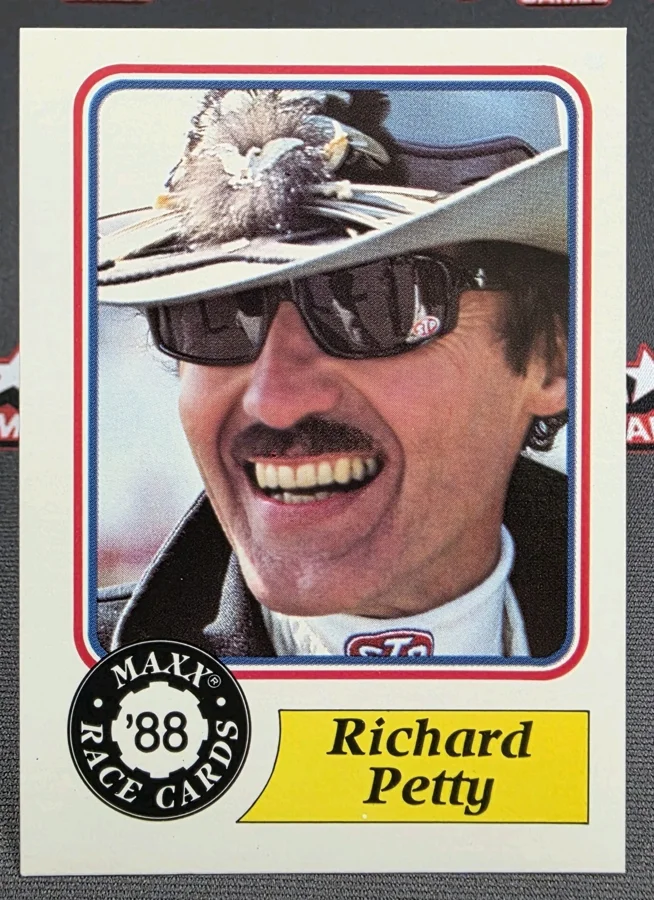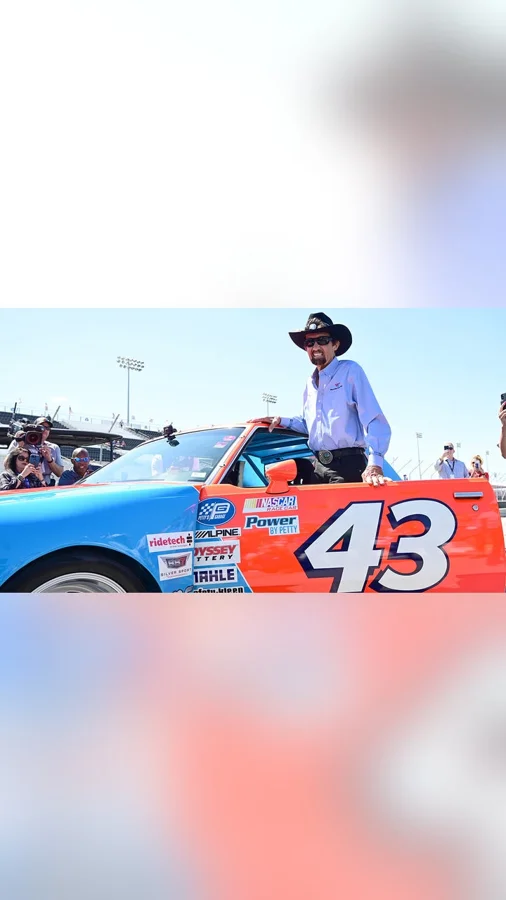Richard Petty NASCAR tradition and technology came into the spotlight after a playful incident exposed the wide generation gap within NASCAR’s royal family. During a recent conversation, son Kyle Petty described his legendary father’s humorous struggle with digital tools, capturing how the Pettys balance time-tested customs with racing’s technological advancements.
Generational Divide Between Tradition and Innovation in the Petty Family
The Petty family, spanning generations from patriarch Lee Petty to current torchbearer Kyle Petty, has always held a central place in NASCAR history. As the son of Lee Petty, Richard Petty carved out his own place in racing folklore, famously earning the nickname “The King” after an unmatched 200 victories and seven championship titles. Now at 88, Richard remains closely connected to the sport, while his 65-year-old son, Kyle, has continued their legacy both on the track and as a broadcaster, even as they navigate the shifting landscape of modern motorsports.
The strong family roots and history are often celebrated, yet recent stories reveal the challenges of bridging old-school habits with the relentless pace of technological change. In an interview, Kyle admitted that trying to keep Richard up to date with new tech can be comically difficult.
“It’s tough for me too, (to) bring him up to speed when I’m not.”
—Kyle Petty, Driver and Commentator. On one occasion during a race, Richard attempted to monitor live lap times on a computer, only to be stumped by a frozen screen. As the confusion unfolded, Kyle recalled,

“He’s mashing buttons and beating on, doing the thing. And he calls for me.”
—Kyle Petty, Driver and Commentator. The real culprit turned out to be the kids unplugging the router, underscoring the sometimes-chaotic, always-human side of this racing dynasty.
Kyle’s anecdotes didn’t stop there. Asked how he tries to bring his father up to speed with technology, Kyle explained the persistence of paper in their world.
“So you’re asking me to teach him technology. He takes an index card and writes down all his information on it. He carries it in his wallet. He’ll get it out, and he calls it a blueberry…He calls it ‘This is my blueberry, it tells me where to be all the time.’ So that’s the extent.”
—Kyle Petty, Driver and Commentator. It is this charming resistance to new gadgets that keeps Richard grounded, reaffirming the Petty family’s deep hospitality toward tradition in a sport hungry for data-driven decisions.
Summing up the contrast and camaraderie, Kyle admitted with a laugh,
“We are still paper and pen,”
—Kyle Petty, Driver and Commentator. The confession was more than a punchline; it illustrated the Pettys’ stubborn pride in doing things their way, celebrating family identity before rapid change. While digital dashboards and real-time analytics are now standard in NASCAR, the legacy of the Petty family—including the “blueberry”—remains grounded in humor and a sense of continuity amid evolving trends.
How the Pettys Continue Their Influence Beyond the Track
Even as race strategies become more reliant on data and high-tech monitoring, the Pettys stay active in the NASCAR community. Richard holds the title of ambassador for Legacy Motor Club, extending his influence well beyond his driving career. Meanwhile, Kyle carries the family banner through his broadcasting work and by hosting the annual Kyle Petty Charity Ride Across America. This event, which brought in $1.4 million for Victory Junction in its latest edition, supports a camp dedicated to children facing serious health challenges. These ongoing efforts ensure that the Petty impact extends to broader causes, uniting fans around both sport and philanthropy.
The family’s enduring connection reinforces their role in shaping NASCAR’s identity and values. Adam Petty, Kyle’s late son, was once poised to continue the racing tradition, and his legacy is still honored through the family’s charitable and public work. The stories that emerge from the Petty clan, such as Richard’s “blueberry,” showcase how humor and old-school habits coexist with modern techniques. This duality is a testament to the Pettys’ relevance and influence, intertwined with laughter, memory, and the lessons passed from one generation to the next.
Richard Petty’s Thoughts on NASCAR’s Evolving Technologies and Race Strategies
As NASCAR’s technological advances transform the sport, debates have sharpened around whether innovation helps or hinders the core racing experience. Richard Petty, a foundational figure in the Cup Series, recently added a measured perspective to ongoing discussions about the Next Gen car and the sport’s future direction. Addressing the challenges of the current era, he emphasized that no simple solution can reconcile every issue facing the series.
“I don’t think there’s any one thing… there is a combination that will make the cars better. But right now, I don’t think anybody’s got it figured out.”
—Richard Petty, Seven-Time NASCAR Cup Series Champion. His comments reflect the complex crossroads NASCAR now faces, blending tradition with progress.
Specifically, Petty criticized the ongoing “tire situation” seen in races like Richmond Raceway, a change he felt shifted the competitive focus.
“When they throwed the green flag, everybody said, ‘OK, what are we going to do on tires’. Not ‘what are we going to do racing each other?’”
—Richard Petty, Seven-Time NASCAR Cup Series Champion. By elevating strategy over on-track showdowns, Petty suggested, NASCAR may risk losing the pulsating action that draws its core fanbase.
He also targeted the problem of excessive tire wear, arguing it lessens the spectacle.
“With that much fall-off, it just really kills the race.”
—Richard Petty, Seven-Time NASCAR Cup Series Champion. Petty proposed returning to more durable and consistent tire varieties to enhance the racing, reducing unnecessary experimentation that distracts from driver skill and side-by-side battles. His words echoed a broader warning: that shifting too far from traditional racing fundamentals risks eroding the essence that defines stock car competition.
In voicing these concerns, Richard Petty does not dismiss innovation outright, but he’s clear that NASCAR must weigh each change against the enduring identity of the sport. His perspective serves as a reminder that the division between old and new extends beyond family anecdotes, such as the “blueberry,” and into the DNA of the sport itself.
What Petty’s ‘Blueberry’ Story Tells Us About NASCAR’s Path Forward
Stories like Richard Petty’s “blueberry” moment are more than mere nostalgia; they illustrate the ongoing push and pull between keeping heritage alive and embracing the future of stock car racing. The iconic family’s playful internal struggles echo a much broader debate happening in the paddock and among fans, as legendary teams like Legacy Motor Club adapt to real-time data, standardized vehicles, and rapidly evolving strategy.
Richard’s perspective—grounded both in humor and a protective instinct for tradition—highlights why NASCAR continues to spark passionate responses from its audience. His critique of modern racing’s technical complexities, along with Kyle’s affectionate storytelling, underscores the need to balance data-driven innovation with the sport’s roots. As the Pettys show, resilience, laughter, and legacy remain just as important as horsepower and algorithms.
As NASCAR looks to the future, stories like these serve as both a warning and a celebration. They caution against losing the essence that made the sport unique, reminding observers that while technology evolves, the foundational spirit and camaraderie of families like the Pettys should never be left behind. Richard Petty’s “blueberry” mishap is a symbol—at once funny and profound—of what makes NASCAR a sport built as much on tradition and shared experience as on speed and spectacle.
